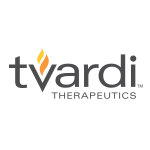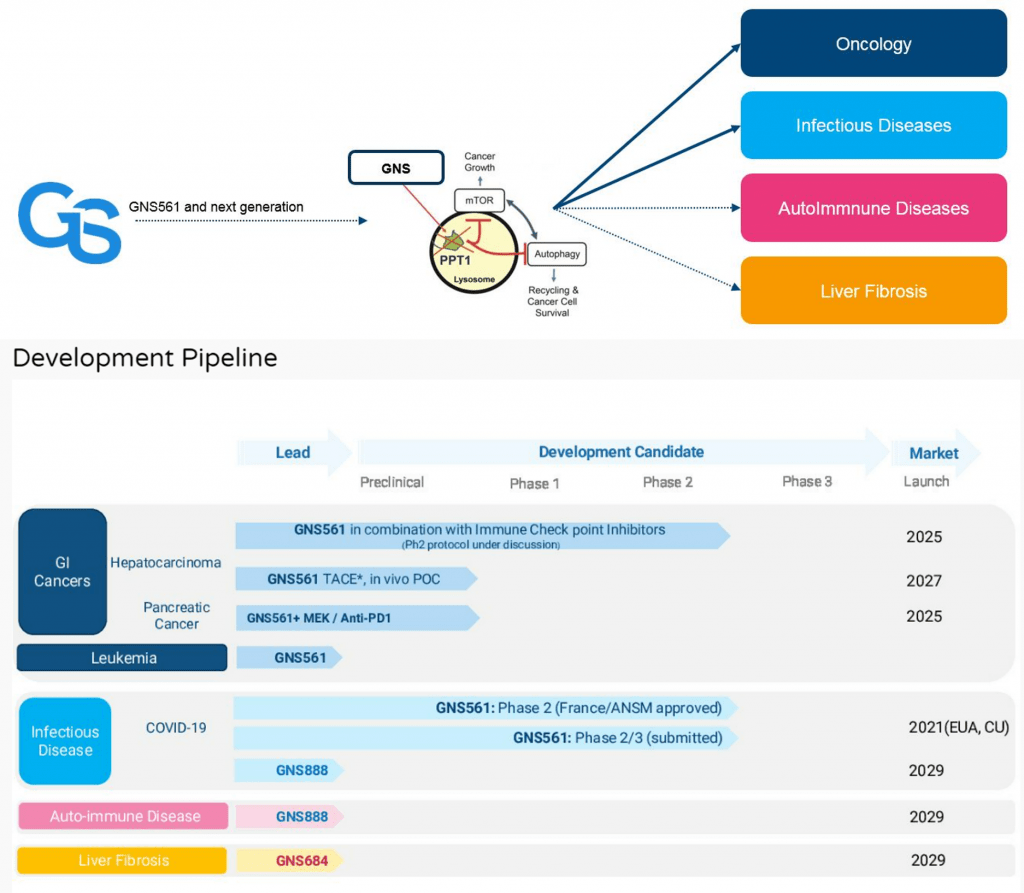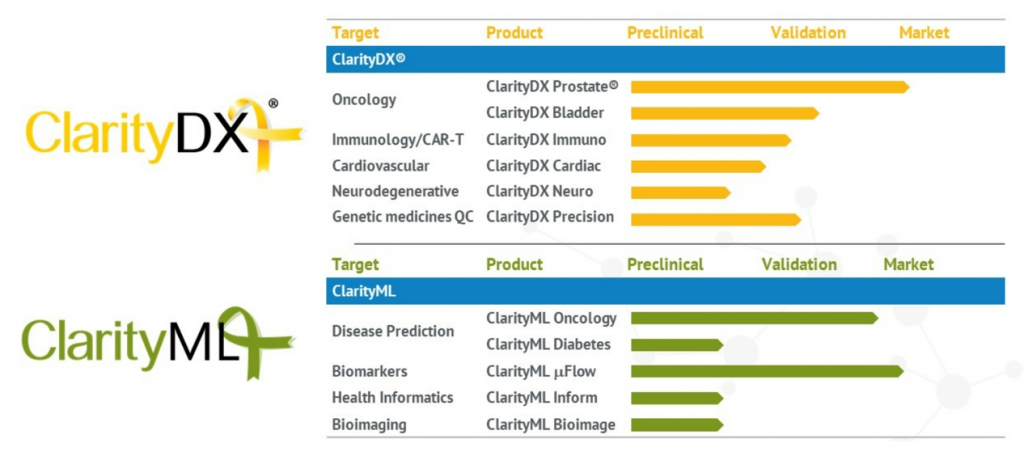U.S. FDA Approves Trodelvy® in Pre-treated HR+/HER2- Metastatic Breast Cancer
U.S. FDA Approves Trodelvy® in Pre-treated HR+/HER2- Metastatic Breast Cancer
— First Trop-2 Directed ADC to Demonstrate Overall Survival Benefit in HR+/HER2- Metastatic Breast Cancer Patients who had Received Prior Endocrine-based Therapy and at Least Two Chemotherapies —
— Trodelvy has Now Improved Survival in both Pre-Treated HR+/HER2- Metastatic Breast Cancer and in Second-Line Metastatic Triple-Negative Breast Cancer —
FOSTER CITY, Calif.–(BUSINESS WIRE)–Gilead Sciences, Inc. (Nasdaq: GILD) today announced the U.S. Food and Drug Administration (FDA) has approved Trodelvy® (sacituzumab govitecan-hziy) for the treatment of adult patients with unresectable locally advanced or metastatic hormone receptor (HR)-positive, human epidermal growth factor receptor 2 (HER2)-negative (IHC 0, IHC 1+ or IHC 2+/ISH–) breast cancer who have received endocrine-based therapy and at least two additional systemic therapies in the metastatic setting. The approval is based on statistically significant and clinically meaningful progression-free survival and overall survival data from the Phase 3 TROPiCS-02 study. Trodelvy is now also recommended as a Category 1, preferred treatment for metastatic HR+/HER2- breast cancer by the National Comprehensive Cancer Network® (NCCN®) as defined in the Clinical Practice Guidelines in Oncology (NCCN Guidelines®)i.
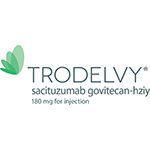
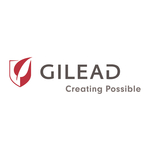
“Despite decades of advances, people living with pre-treated HR+/HER2- metastatic breast cancer need new treatment options. Nearly all people with this type of breast cancer will eventually develop resistance to endocrine-based therapies and progress on available chemotherapies,” said Hope S. Rugo, MD, Professor of Medicine and Director, Breast Oncology and Clinical Trials Education at the UCSF Helen Diller Family Comprehensive Cancer Center, U.S. and principal investigator of the TROPiCS-02 study. “This approval is significant for the breast cancer community. We have had limited options to offer patients after endocrine-based therapy and chemotherapy, and to see a clinically meaningful survival benefit of more than three months with a quality of life benefit for these women is exceptional.”
In the TROPiCS-02 study, Trodelvy demonstrated a statistically significant and clinically meaningful overall survival (OS) benefit of 3.2 months versus comparator single-agent chemotherapy (treatment of physician’s choice; TPC) (median OS: 14.4 months vs. 11.2 months; hazard ratio [HR]=0.79; 95% CI: 0.65-0.96; p=0.02). Trodelvy also demonstrated a 34% reduction in risk of disease progression or death (median PFS: 5.5 versus 4.0 months; HR: 0.66; 95% CI: 0.53-0.83; p=0.0003). Three times as many people treated with Trodelvy were progression free at one year versus those treated with chemotherapy (21% versus 7%). In a post-hoc analysis, data demonstrated Trodelvy’s efficacy across HER2-low and IHC0 status in pre-treated metastatic breast cancer patients in the TROPiCS-02 trial.
Trodelvy also significantly improved additional secondary endpoint measures, including objective response rate and time to deterioration (TTD) assessed by the Global Health Status/Quality of Life and Fatigue scale per EORTC-QLQ-C30. No statistically significant difference in TTD in Pain Scale was observed.
“The FDA approval is an important step forward for both women and men living with metastatic breast cancer, especially for those individuals whose tumor is no longer responding to endocrine-based therapies and who are facing a poor prognosis,” said Laura Carfang, Executive Director, SurvivingBreastCancer.org. “We need to combat this terrible disease, and all options that potentially slow its progress and extend life for those living with metastatic breast cancer are welcomed.”
“We are pleased that Trodelvy could now provide new hope for people living with pre-treated HR+/HER2- metastatic breast cancer, building on the transformative role that Trodelvy is already playing for people with metastatic triple-negative breast cancer,” said Daniel O’Day, Chairman and Chief Executive Officer, Gilead Sciences. “We thank the physicians, patients and their families who put their trust in the TROPiCS-02 study and helped make this milestone possible.”
The safety profile for Trodelvy was consistent with prior studies, with no new safety signals identified in this patient population. In TROPiCS-02 the most frequent serious adverse reactions (>1%) were diarrhea (5%), febrile neutropenia (4%), neutropenia (3%), abdominal pain, colitis, neutropenic colitis, pneumonia, and vomiting (each 2%). The most common Grade 3-4 lab abnormalities (incidence ≥25%) in the TROPiCS-02 study were reduced neutrophils and leukocytes. No patients treated with Trodelvy experienced interstitial lung disease.
This review by the FDA was conducted under Project Orbis and granted Priority Review.
The European Medicines Agency has also validated a Type II Variation Marketing Authorization Application for Trodelvy in HR+/HER2- metastatic breast cancer.
Trodelvy has a Boxed Warning for severe or life-threatening neutropenia and severe diarrhea; please see below for additional Important Safety Information.
About HR+/HER2- Metastatic Breast Cancer
Hormone receptor-positive/human epidermal growth factor receptor 2-negative (HR+/HER2-) breast cancer is the most common type of breast cancer and accounts for approximately 70% of all new cases. Almost one in three cases of early-stage breast cancer eventually become metastatic, and among patients with HR+/HER2- metastatic disease, the five-year relative survival rate is 30%. As patients with HR+/HER2- metastatic breast cancer become resistant to endocrine-based therapy, their primary treatment option is limited to single-agent chemotherapy. In this setting, it is common to receive multiple lines of chemotherapy regimens over the course of treatment, and the prognosis remains poor.
About the TROPiCS-02 Study
The TROPiCS-02 study is a global, multicenter, open-label, Phase 3 study, randomized 1:1 to evaluate Trodelvy versus physicians’ choice of chemotherapy (eribulin, capecitabine, gemcitabine, or vinorelbine) in 543 patients with HR+/HER2- metastatic breast cancer who were previously treated with endocrine therapy, CDK4/6 inhibitor and two to four lines of chemotherapy for metastatic disease. The primary endpoint is progression-free survival per Response Evaluation Criteria in Solid Tumors (RECIST 1.1) as assessed by blinded independent central review (BICR) for participants treated with Trodelvy compared to those treated with chemotherapy. Secondary endpoints include overall survival, overall response rate, clinical benefit rate and duration of response, as well as assessment of safety and tolerability and quality of life measures. In the study, HER2 negativity was defined per American Society of Clinical Oncology (ASCO) and the College of American Pathologists (CAP) criteria as immunohistochemistry (IHC) score of 0, IHC 1+ or IHC 2+ with a negative in-situ hybridization (ISH) test. More information about TROPiCS-02 is available at https://clinicaltrials.gov/ct2/show/NCT03901339.
About Trodelvy
Trodelvy® (sacituzumab govitecan-hziy) is a first-in-class Trop-2 directed antibody-drug conjugate. Trop-2 is a cell surface antigen highly expressed in multiple tumor types, including in more than 90% of breast and bladder cancers. Trodelvy is intentionally designed with a proprietary hydrolyzable linker attached to SN-38, a topoisomerase I inhibitor payload. This unique combination delivers potent activity to both Trop-2 expressing cells and the microenvironment.
Trodelvy is approved in more than 40 countries, with multiple additional regulatory reviews underway worldwide, for the treatment of adult patients with unresectable locally advanced or metastatic triple-negative breast cancer (TNBC) who have received two or more prior systemic therapies, at least one of them for metastatic disease.
Trodelvy is also approved in the U.S. to treat certain patients with pre-treated HR+/HER2- metastatic breast cancer and has an accelerated approval for treatment of certain patients with second-line metastatic urothelial cancer; see below for full indication statements.
Trodelvy is also being developed for potential investigational use in other TNBC, HR+/HER2- and metastatic UC populations, as well as a range of tumor types where Trop-2 is highly expressed, including metastatic non-small cell lung cancer (NSCLC), metastatic small cell lung cancer (SCLC), head and neck cancer, and endometrial cancer.
U.S. Indications for Trodelvy
In the United States, Trodelvy is indicated for the treatment of adult patients with:
-
Unresectable locally advanced or metastatic triple-negative breast cancer (mTNBC) who have received two or more prior systemic therapies, at least one of them for metastatic disease.
-
Unresectable locally advanced or metastatic hormone receptor (HR)-positive, human epidermal growth factor receptor 2 (HER2)-negative (IHC 0, IHC 1+ or IHC 2+/ISH–) breast cancer who have received endocrine-based therapy and at least two additional systemic therapies in the metastatic setting.
-
Locally advanced or metastatic urothelial cancer (mUC) who have previously received a platinum-containing chemotherapy and either programmed death receptor-1 (PD-1) or programmed death-ligand 1 (PD-L1) inhibitor. This indication is approved under accelerated approval based on tumor response rate and duration of response. Continued approval for this indication may be contingent upon verification and description of clinical benefit in confirmatory trials.
U.S. Important Safety Information for Trodelvy
BOXED WARNING: NEUTROPENIA AND DIARRHEA
-
Severe or life-threatening neutropenia may occur. Withhold Trodelvy for absolute neutrophil count below 1500/mm3 or neutropenic fever. Monitor blood cell counts periodically during treatment. Consider G-CSF for secondary prophylaxis. Initiate anti-infective treatment in patients with febrile neutropenia without delay.
-
Severe diarrhea may occur. Monitor patients with diarrhea and give fluid and electrolytes as needed. At the onset of diarrhea, evaluate for infectious causes and, if negative, promptly initiate loperamide. If severe diarrhea occurs, withhold Trodelvy until resolved to ≤Grade 1 and reduce subsequent doses.
CONTRAINDICATIONS
-
Severe hypersensitivity reaction to Trodelvy.
WARNINGS AND PRECAUTIONS
Neutropenia: Severe, life-threatening, or fatal neutropenia can occur and may require dose modification. Neutropenia occurred in 64% of patients treated with Trodelvy. Grade 3-4 neutropenia occurred in 49% of patients. Febrile neutropenia occurred in 6%. Neutropenic colitis occurred in 1.4%. Withhold Trodelvy for absolute neutrophil count below 1500/mm3 on Day 1 of any cycle or neutrophil count below 1000/mm3 on Day 8 of any cycle. Withhold Trodelvy for neutropenic fever. Administer G-CSF as clinically indicated or indicated in Table 1 of USPI.
Diarrhea: Diarrhea occurred in 64% of all patients treated with Trodelvy. Grade 3-4 diarrhea occurred in 11% of patients. One patient had intestinal perforation following diarrhea. Diarrhea that led to dehydration and subsequent acute kidney injury occurred in 0.7% of all patients. Withhold Trodelvy for Grade 3-4 diarrhea and resume when resolved to ≤Grade 1. At onset, evaluate for infectious causes and if negative, promptly initiate loperamide, 4 mg initially followed by 2 mg with every episode of diarrhea for a maximum of 16 mg daily. Discontinue loperamide 12 hours after diarrhea resolves. Additional supportive measures (e.g., fluid and electrolyte substitution) may also be employed as clinically indicated. Patients who exhibit an excessive cholinergic response to treatment can receive appropriate premedication (e.g., atropine) for subsequent treatments.
Hypersensitivity and Infusion-Related Reactions: Serious hypersensitivity reactions including life-threatening anaphylactic reactions have occurred with Trodelvy. Severe signs and symptoms included cardiac arrest, hypotension, wheezing, angioedema, swelling, pneumonitis, and skin reactions. Hypersensitivity reactions within 24 hours of dosing occurred in 35% of patients. Grade 3-4 hypersensitivity occurred in 2% of patients. The incidence of hypersensitivity reactions leading to permanent discontinuation of Trodelvy was 0.2%. The incidence of anaphylactic reactions was 0.2%. Pre-infusion medication is recommended. Have medications and emergency equipment to treat such reactions available for immediate use. Observe patients closely for hypersensitivity and infusion-related reactions during each infusion and for at least 30 minutes after completion of each infusion. Permanently discontinue Trodelvy for Grade 4 infusion-related reactions.
Nausea and Vomiting: Nausea occurred in 64% of all patients treated with Trodelvy and Grade 3-4 nausea occurred in 3% of these patients. Vomiting occurred in 35% of patients and Grade 3-4 vomiting occurred in 2% of these patients. Premedicate with a two or three drug combination regimen (e.g., dexamethasone with either a 5-HT3 receptor antagonist or an NK1 receptor antagonist as well as other drugs as indicated) for prevention of chemotherapy-induced nausea and vomiting (CINV). Withhold Trodelvy doses for Grade 3 nausea or Grade 3-4 vomiting and resume with additional supportive measures when resolved to Grade ≤1. Additional antiemetics and other supportive measures may also be employed as clinically indicated. All patients should be given take-home medications with clear instructions for prevention and treatment of nausea and vomiting.
Increased Risk of Adverse Reactions in Patients with Reduced UGT1A1 Activity: Patients homozygous for the uridine diphosphate-glucuronosyl transferase 1A1 (UGT1A1)*28 allele are at increased risk for neutropenia, febrile neutropenia, and anemia and may be at increased risk for other adverse reactions with Trodelvy. The incidence of Grade 3-4 neutropenia was 58% in patients homozygous for the UGT1A1*28, 49% in patients heterozygous for the UGT1A1*28 allele, and 43% in patients homozygous for the wild-type allele. The incidence of Grade 3-4 anemia was 21% in patients homozygous for the UGT1A1*28 allele, 10% in patients heterozygous for the UGT1A1*28 allele, and 9% in patients homozygous for the wild-type allele. Closely monitor patients with known reduced UGT1A1 activity for adverse reactions. Withhold or permanently discontinue Trodelvy based on clinical assessment of the onset, duration and severity of the observed adverse reactions in patients with evidence of acute early-onset or unusually severe adverse reactions, which may indicate reduced UGT1A1 function.
Embryo-Fetal Toxicity: Based on its mechanism of action, Trodelvy can cause teratogenicity and/or embryo-fetal lethality when administered to a pregnant woman. Trodelvy contains a genotoxic component, SN-38, and targets rapidly dividing cells. Advise pregnant women and females of reproductive potential of the potential risk to a fetus. Advise females of reproductive potential to use effective contraception during treatment with Trodelvy and for 6 months after the last dose. Advise male patients with female partners of reproductive potential to use effective contraception during treatment with Trodelvy and for 3 months after the last dose.
ADVERSE REACTIONS
In the pooled safety population, the most common (≥ 25%) adverse reactions including laboratory abnormalities were decreased leukocyte count (84%), decreased neutrophil count (75%), decreased hemoglobin (69%), diarrhea (64%), nausea (64%), decreased lymphocyte count (63%), fatigue (51%), alopecia (45%), constipation (37%), increased glucose (37%), decreased albumin (35%), vomiting (35%), decreased appetite (30%), decreased creatinine clearance (28%), increased alkaline phosphatase (28%), decreased magnesium (27%), decreased potassium (26%), and decreased sodium (26%).
In the ASCENT study (locally advanced or metastatic triple-negative breast cancer), the most common adverse reactions (incidence ≥25%) were fatigue, diarrhea, nausea, alopecia, constipation, vomiting, abdominal pain, and decreased appetite. The most frequent serious adverse reactions (SAR) (>1%) were neutropenia (7%), diarrhea (4%), and pneumonia (3%). SAR were reported in 27% of patients, and 5% discontinued therapy due to adverse reactions. The most common Grade 3-4 lab abnormalities (incidence ≥25%) in the ASCENT study were reduced neutrophils, leukocytes, and lymphocytes.
In the TROPiCS-02 study (locally advanced or metastatic HR-positive, HER2-negative breast cancer), the most common adverse reactions (incidence ≥25%) were diarrhea, fatigue, nausea, alopecia, and constipation. The most frequent serious adverse reactions (SAR) (>1%) were diarrhea (5%), febrile neutropenia (4%), neutropenia (3%), abdominal pain, colitis, neutropenic colitis, pneumonia, and vomiting (each 2%). SAR were reported in 28% of patients, and 6% discontinued therapy due to adverse reactions. The most common Grade 3-4 lab abnormalities (incidence ≥25%) in the TROPiCS-02 study were reduced neutrophils and leukocytes.
In the TROPHY study (locally advanced or metastatic urothelial cancer), the most common adverse reactions (incidence ≥25%) were diarrhea, fatigue, nausea, any infection, alopecia, decreased appetite, constipation, vomiting, rash, and abdominal pain. The most frequent serious adverse reactions (SAR) (≥5%) were infection (18%), neutropenia (12%, including febrile neutropenia in 10%), acute kidney injury (6%), urinary tract infection (6%), and sepsis or bacteremia (5%). SAR were reported in 44% of patients, and 10% discontinued due to adverse reactions. The most common Grade 3-4 lab abnormalities (incidence ≥25%) in the TROPHY study were reduced neutrophils, leukocytes, and lymphocytes.
DRUG INTERACTIONS
UGT1A1 Inhibitors: Concomitant administration of Trodelvy with inhibitors of UGT1A1 may increase the incidence of adverse reactions due to potential increase in systemic exposure to SN-38. Avoid administering UGT1A1 inhibitors with Trodelvy.
UGT1A1 Inducers: Exposure to SN-38 may be reduced in patients concomitantly receiving UGT1A1 enzyme inducers. Avoid administering UGT1A1 inducers with Trodelvy.
Please see full Prescribing Information, including BOXED WARNING.
About Gilead Sciences
Gilead Sciences, Inc. is a biopharmaceutical company that has pursued and achieved breakthroughs in medicine for more than three decades, with the goal of creating a healthier world for all people. The company is committed to advancing innovative medicines to prevent and treat life-threatening diseases, including HIV, viral hepatitis and cancer. Gilead operates in more than 35 countries worldwide, with headquarters in Foster City, California.
Forward-Looking Statements
This press release includes forward-looking statements within the meaning of the Private Securities Litigation Reform Act of 1995 that are subject to risks, uncertainties and other factors, including Gilead’s ability to initiate, progress or complete clinical trials within currently anticipated timelines or at all, and the possibility of unfavorable results from ongoing or additional clinical trials, including those involving Trodelvy; uncertainties relating to regulatory applications for Trodelvy and related filing and approval timelines, including the risk that the European Commission may not approve the pending marketing authorization application for Trodelvy in HR+/HER2- metastatic breast cancer, and pending or potential applications for the treatment of metastatic TNBC, mUC, HR+/HER2- breast cancer, NSCLC, SCLC, head and neck cancer, endometrial cancer and other cancers, in the currently anticipated timelines or at all; Gilead’s ability to receive regulatory approvals for such indications in a timely manner or at all, and the risk that any such approvals may be subject to significant limitations on use; the possibility that Gilead may make a strategic decision to discontinue development of Trodelvy for such indications and as a result, Trodelvy may never be commercialized for these indications; the risk that physicians may not see the benefits of prescribing Trodelvy for treatment of HR+/HER2- metastatic breast cancer; and any assumptions underlying any of the foregoing. These and other risks, uncertainties and other factors are described in detail in Gilead’s Quarterly Report on Form 10-Q for the quarter ended September 30, 2022, as filed with the U.S. Securities and Exchange Commission. These risks, uncertainties and other factors could cause actual results to differ materially from those referred to in the forward-looking statements. All statements other than statements of historical fact are statements that could be deemed forward-looking statements. The reader is cautioned that any such forward-looking statements are not guarantees of future performance and involve risks and uncertainties, and is cautioned not to place undue reliance on these forward-looking statements. All forward-looking statements are based on information currently available to Gilead, and Gilead assumes no obligation and disclaims any intent to update any such forward-looking statements.
U.S. Prescribing Information for Trodelvy including BOXED WARNING, is available at www.gilead.com.
Trodelvy, Gilead and the Gilead logo are trademarks of Gilead Sciences, Inc., or its related companies.
For more information about Gilead, please visit the company’s website at www.gilead.com, follow Gilead on Twitter (@GileadSciences) or call Gilead Public Affairs at 1-800-GILEAD-5 or 1-650-574-3000.
UC Disclaimer
The information stated above was prepared by Gilead Sciences, Inc., and reflects solely the opinion of the corporation. Nothing in this statement shall be construed to imply any support or endorsement of Gilead, or any of its products, by The Regents of the University of California, its officers, agents and employees.
i Referenced with permission from the NCCN Clinical Practice Guidelines in Oncology (NCCN Guidelines) for Breast Cancer Version 1.2023. © National Comprehensive Cancer Network, Inc. 2023. All rights reserved. Accessed January 2023. To view the most recent and complete version of the guideline, go online to NCCN.org. NCCN makes no warranties of any kind whatsoever regarding their content, use or application and disclaims any responsibility for their application or use in any way.
Contacts
Jacquie Ross, Investors
investor_relations@gilead.com
Meaghan Smith, Media
public_affairs@gilead.com
